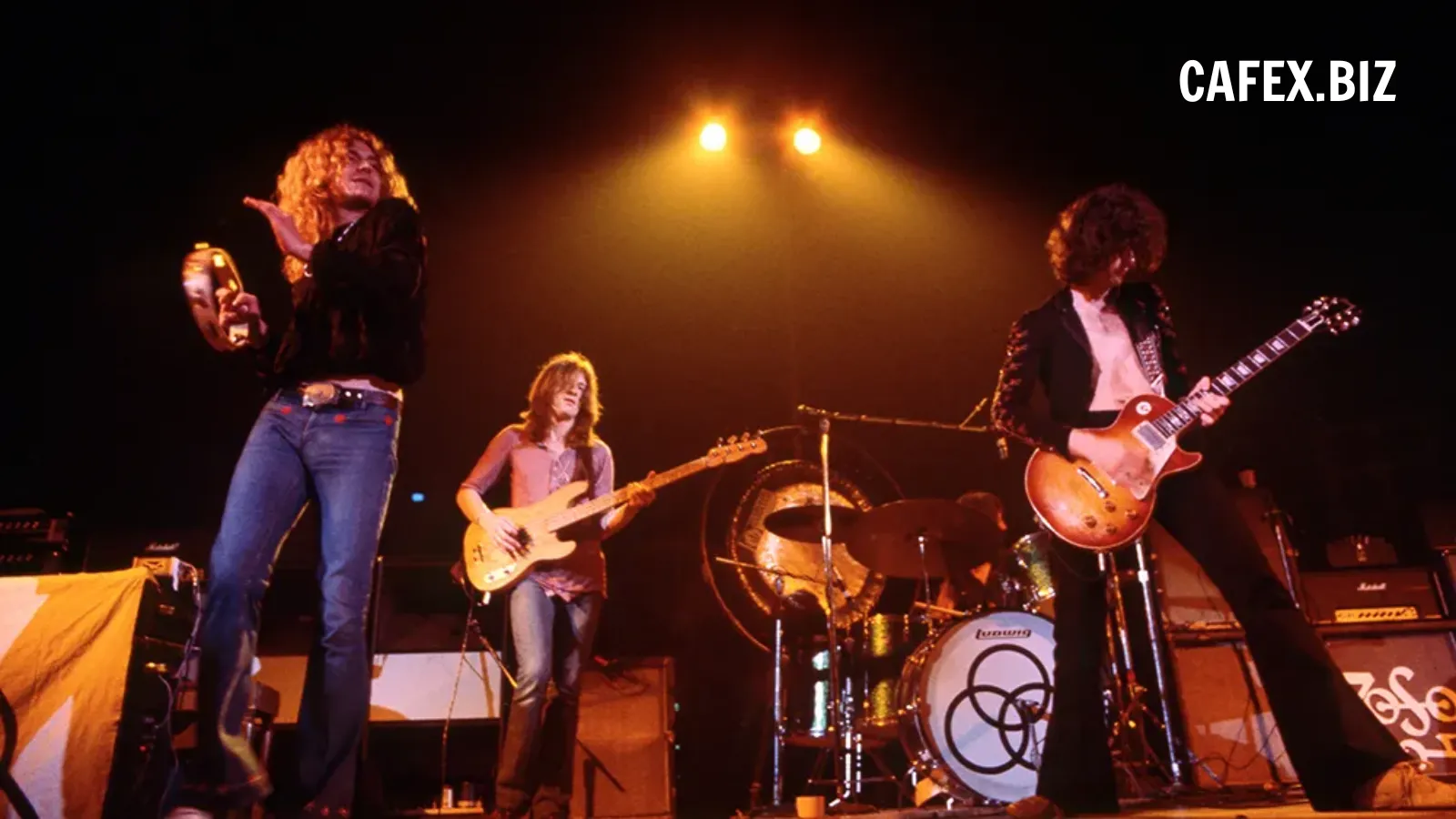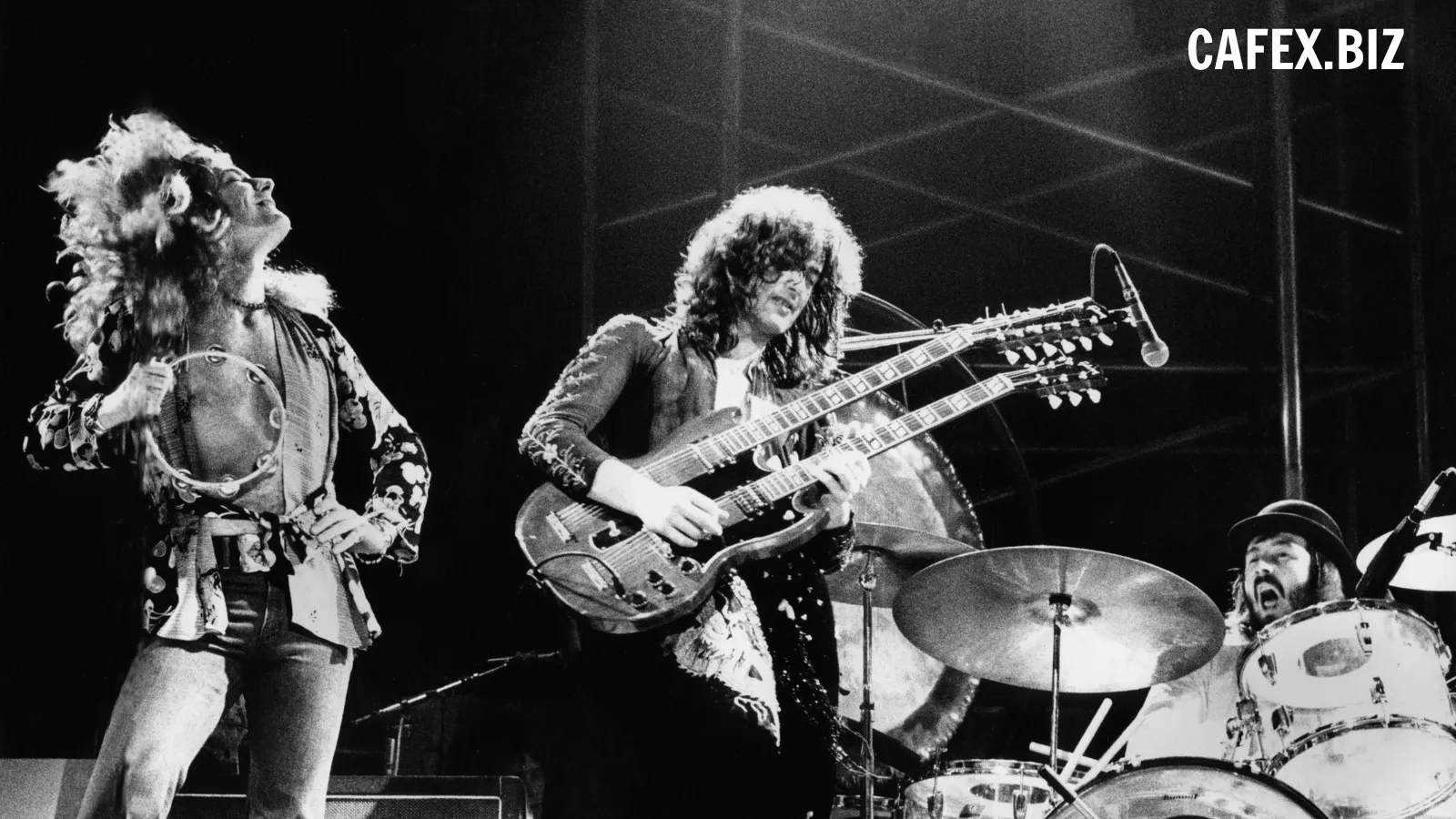The year 1971 marked a pivotal moment in the history of Led Zeppelin, one of the most influential rock bands of all time. With a string of successful albums and legendary live performances, Led Zeppelin had already firmly established themselves as rock icons by this point. However, 1971 stands out as a year in which the band reached new heights of artistic creativity and cultural influence. In this comprehensive exploration, we will delve into Led Zeppelin's journey through 1971, focusing on their musical output, live performances, cultural impact, and the challenges they faced as they continued their ascent to rock and roll greatness.
Led Zeppelin IV - A Monumental Achievement
The year 1971 began with the release of one of the most celebrated albums in the history of rock music - "Led Zeppelin IV." Also known as "Four Symbols" or "Zoso," this album is widely regarded as a masterpiece that defines the essence of Led Zeppelin's artistry. It was a pivotal moment in the band's career and in the broader landscape of rock music.
"Led Zeppelin IV" featured some of the band's most iconic tracks, including "Stairway to Heaven," "Black Dog," "Rock and Roll," and "When the Levee Breaks." These songs showcased the band's versatility, blending hard rock, blues, and folk influences into a musical tapestry that captivated listeners. The album's distinctive cover, adorned with mysterious symbols, added to the intrigue and mythology surrounding the band.
The Band's Musical Evolution

"Led Zeppelin IV" was significant not only for its commercial success but also for its artistic growth. The album demonstrated the band's willingness to experiment and evolve their sound. While their earlier albums had a strong blues-rock foundation, "Led Zeppelin IV" introduced a more diverse range of musical elements.
The inclusion of folk and acoustic elements, as seen in songs like "Going to California" and "The Battle of Evermore," showcased Led Zeppelin's ability to embrace new genres while maintaining their signature hard-rock sound. This musical exploration set the stage for the band's future work and influenced a generation of musicians who would follow in their footsteps.
Immortal Live Performances

1971 was a year of epic live performances for Led Zeppelin. The band was renowned for their electrifying concerts, which featured intricate improvisation, blistering solos, and a palpable energy that could only be experienced in a live setting.
One of the most legendary performances of this year was at the L.A. Forum on August 21, 1971. This concert is often cited as one of the greatest live shows in rock history. The band's raw power and virtuosity were on full display, and the audience was treated to an unforgettable musical experience. Led Zeppelin's ability to connect with their fans through their live performances was a testament to their status as one of the premier live acts of the era.
Cultural Impact
The cultural impact of Led Zeppelin in 1971 cannot be overstated. "Led Zeppelin IV" was more than just an album; it was a cultural touchstone. "Stairway to Heaven," in particular, became an anthem of the era, and its enduring popularity has made it one of the most recognized and celebrated rock songs of all time.
The album's cover art, with its enigmatic symbols and intricate design, added to the band's mystique. Fans and music enthusiasts alike dissected the cover, attempting to decode its hidden meanings. This level of engagement with the band's art and imagery was emblematic of the deep connection between Led Zeppelin and their audience.
Challenges and Struggles

Despite their immense success, Led Zeppelin faced their fair share of challenges in 1971. The band's rigorous touring schedule took a toll on their physical and mental well-being. The demands of being a global rock sensation meant constant travel, performing, and media scrutiny. These pressures were particularly difficult for lead singer Robert Plant, whose vocal cords were strained from the intense live performances.
Additionally, the band's indulgence in excesses, such as drugs and alcohol, began to take a toll on their health and relationships. While this lifestyle was not uncommon among rock stars of the era, it contributed to the band's struggles and tensions.
The Year's Legacy

1971 left a lasting legacy for Led Zeppelin and for rock music as a whole. "Led Zeppelin IV" remains a timeless classic, an album that continues to be celebrated and analyzed for its musical innovation and lyrical depth. The enduring popularity of tracks like "Stairway to Heaven" ensures that Led Zeppelin's music remains relevant and beloved by new generations of music lovers.
Beyond the music itself, the band's cultural impact in 1971 is evident in the enduring fascination with their enigmatic symbols and imagery. Led Zeppelin's influence on the aesthetics of rock and roll, from album artwork to stage design, continues to be felt in contemporary music and pop culture.

Led Zeppelin's journey through 1971 was a testament to their artistic prowess and cultural impact. "Led Zeppelin IV" stands as a towering achievement, a beacon of creative brilliance that continues to inspire musicians and captivate audiences. The band's live performances in 1971 remain legendary, a testament to their ability to connect with their fans through the power of music.
The challenges and struggles faced by the band in 1971 serve as a reminder of the human side of rock legends. The excesses and pressures of fame took a toll on their health and relationships, underscoring the sacrifices made in the pursuit of artistic greatness.
In the end, 1971 was a year that solidified Led Zeppelin's status as one of the greatest rock bands of all time. Their music, live performances, and cultural impact have left an indelible mark on the history of rock and roll. Led Zeppelin's enduring legacy ensures that their music will continue to inspire and resonate with audiences for generations to come.


